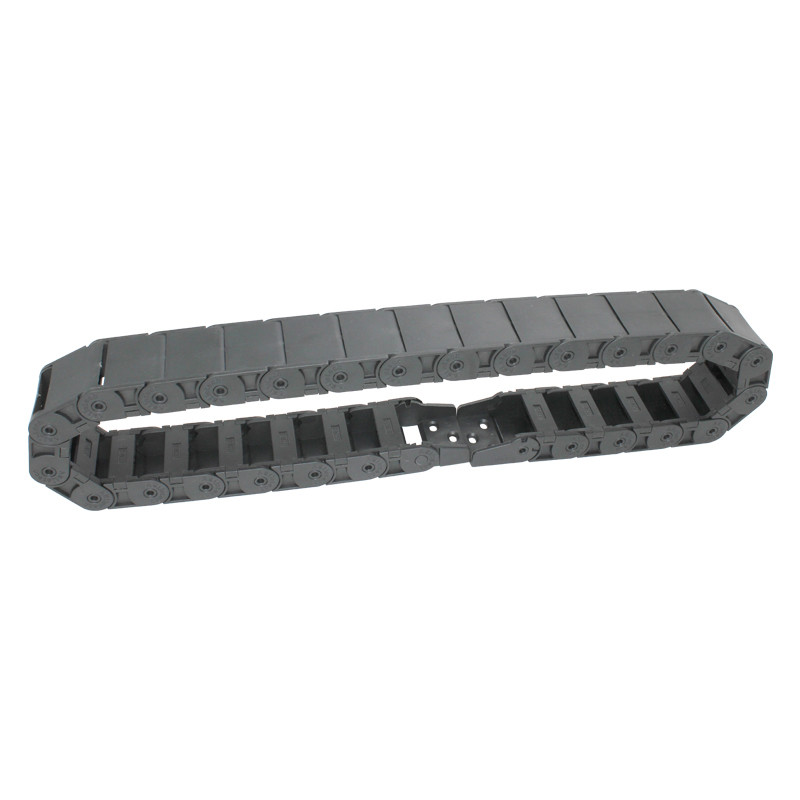Innovative Solutions for Efficient Cable Management and Transportation in Carrier Systems Applications
Understanding Cable Carrier Systems An Essential Component in Modern Industry
In the rapidly evolving landscape of manufacturing and logistics, efficiency and reliability play paramount roles in maintaining competitive advantages. One critical element that often goes unnoticed is the cable carrier system, an engineering marvel designed to safeguard and manage cables and hoses in a variety of environments. These systems, also known as energy chains or drag chains, are pivotal in ensuring the seamless operation of machinery and automation equipment.
What is a Cable Carrier System?
A cable carrier system is essentially a flexible, protective conveyor system for cables, hoses, and other conduits. It prevents tangling, wear, and damage to crucial electrical and hydraulic lines. By organizing and guiding these cables during movement, cable carriers facilitate smooth operation in diverse applications, from industrial machinery to robotic systems.
Cable carrier systems come in various designs, materials, and sizes, tailored to meet the unique needs of different industries. They can handle a multitude of cables simultaneously, offering an efficient solution for organizing complex setups. The flexibility of these systems allows for diverse applications, including vertical lifts, horizontal slides, and even dynamic applications where multi-directional movement is required.
Types of Cable Carrier Systems
1. Plastic Cable Carriers Lightweight and resistant to corrosion, plastic cable carriers are ideal for environments where weight is a critical factor. They can be molded into intricate shapes, making them a versatile choice for various installations.
2. Steel Cable Carriers In contrast, steel cable carriers are designed for heavy-duty applications. Their robust build supports heavy loads, making them suited for industrial settings with demanding operational requirements.
3. Energy Chains A specific type of cable carrier, energy chains are designed for continuous movement operations. These chains provide flexibility while preventing bending and twisting, making them perfect for machinery with repetitive motions.
4. Custom Cable Carriers Beyond standard offerings, many manufacturers provide customizable cable carrier systems designed to fit unique operational needs, allowing for enhanced productivity and safety.
cable carrier systems

Applications in Various Industries
Cable carrier systems find applications across a broad spectrum of industries. In manufacturing, they are integral to CNC machines, assembly lines, and robotic arms. They help minimize downtime by protecting cables from damage caused by constant motion.
In the automotive industry, where automation is crucial, cable carriers facilitate operations in robotic welding, painting, and machining processes. Meanwhile, in logistics, they support material handling equipment, ensuring a tidy and safe environment in warehouses and distribution centers.
Even in the entertainment sector, cable carrier systems are utilized in stage rigging and lighting setups, providing safe movement of power and control lines for productions that require exceptional flexibility and reliability.
Benefits of Implementing Cable Carrier Systems
The implementation of cable carrier systems offers numerous benefits. Firstly, they enhance the lifespan of cables and hoses, reducing maintenance costs associated with wear and tear. This preventive measure leads to fewer downtimes and increases overall productivity.
Secondly, cable carriers contribute to operational safety by reducing the risk of tripping hazards and equipment malfunctions. Organized and secured cables lower the chances of accidents in workplaces, promoting a safer work environment.
Finally, the adaptability of cable carrier systems ensures they can be integrated into any existing infrastructure, minimizing disruption during installation and usage.
Conclusion
In conclusion, cable carrier systems are an indispensable component of modern industrial design and operation. Their ability to protect and manage essential electrical and hydraulic lines contributes significantly to efficiency, safety, and longevity in various applications. As industries continue to embrace automation and advanced manufacturing techniques, the importance of cable carrier systems will only grow, cementing their role as a critical element in the machinery of the future.








